So one would imagine that publishers are already being inundated with pitches for books bringing together the events of the past few weeks, perhaps under the working titles of "Ten Days in June", "America`s Liberal Spring", "The Summer of Love" or "June 2015: The month that changed America."
The narrative almost writes itself. It opens with the cover of the June edition of Vanity Fair, which featured an alluring photograph of Caitlyn Jenner dressed in a silk bodysuit. Jenner, of course, is a one-time Olympic champion, formerly called Bruce, whom most Americans are more used to seeing in an athletics singlet and shorts.

It would encompass two momentous Supreme Court decisions - the first in defence of Obamacare, the second in support of gay marriage. Both were not just victories for President Barack Obama but also triumphs, more broadly, of progressivism.
It would also take in the massacre in Charleston, and the dramatic impact it has had on the long-running Confederate flag debate.
Not only did the governor of South Carolina Nikki Haley call for the flag`s removal from the capitol grounds in Columbia. The governor of the Deep South state of Alabama, the Republican Robert Bentley, actually ordered all Civil War era colours to be hauled down in Montgomery, a city with a long history as a bastion of resistance.
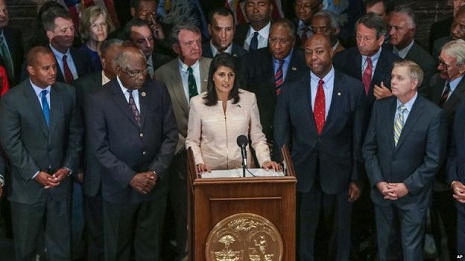
In the space of a few historic weeks then, America witnessed the most thrilling moment yet for its transgender community, the biggest-ever victory for the LGBT movement, a major, probably decisive, win for healthcare, and, arguably, the final surrender of the American Civil War.
With it came an instant iconography: that Jenner portrait by the photographer Annie Leibovitz, the debate-transforming images of alleged killer Dylan Roof brandishing the Confederate battle flag, the pictures of the White House floodlit in the colours of the rainbow flag.
The month also came with its own soundtrack - the relatives of the Charleston killings personally telling Roof during his court appearance that they were prepared to forgive him, the cries of rapture from gay activists outside of the Supreme Court, the utterances of President Obama, who began last week using the "N-word" and ended it singing Amazing Grace, the climax of a presidential speech unlike any other in American history.
American progressives not only celebrated Obamacare and same-sex marriage but the re-emergence of a figure seldom seen over the past seven years, the Barack Obama who electrified American politics during the 2008 campaign.
In Charleston on Friday, when he delivered an expansive eulogy to Clementa Pinckney, he scaled old rhetorical heights. Many regard it as the finest piece of oratory of his presidency.
With the Republican-controlled Congress granting the president fast-track trade authority, the Trans-Pacific Partnership is now within his grasp. That will give meaning to his much-vaunted "Asian pivot".
This was certainly the best week of Obama`s second term, and probably of his entire presidency.
However, it would be an exaggeration to describe this as the belated realisation of his "Yes We Can" America.
Same-sex marriage can hardly be chalked up as an Obama triumph, however hard the White House tried to place itself at the centre of the celebrations.
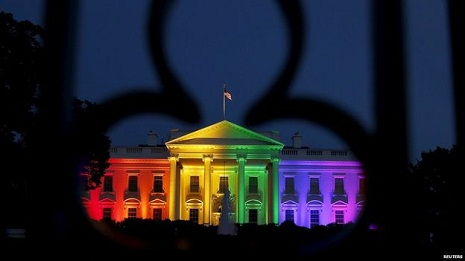
After all, the president only voiced support for same-sex marriage in 2012, and four years earlier he was publicly opposed. On this issue, the president followed rather than led.
To argue that June saw a clean sweep triumph of progressivism also ignores the nettlesome fact that America`s gun controls are exactly the same at the end of the month as they were at the beginning, and will remain so for the foreseeable future.
Ruminating on gun violence in the immediate aftermath of the Charleston massacre, Obama had the weary air of a president resigned to defeat. And with good reason. Here the forces of conservatism are unassailable.
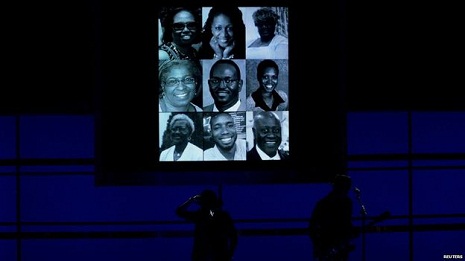
The paradox is that Obama`s best week was not necessarily the Republican party`s worst.
Rather, there are many in the party who quietly welcome these defeats in the culture wars because they should persuade the party to move away from battlefields where they keep losing, social tolerance and healthcare, and to focus instead on areas of traditional strength, the economy and national security.
There are historical precedents for speedy comebacks. The humiliating rout suffered by the Republicans in the 1964 presidential election, when Lyndon Johnson trounced Barry Goldwater, implied that liberalism was ascendant.
But that landslide election paved the way for the Republican revival, which lasted, almost uninterrupted, from 1968 to 1992.
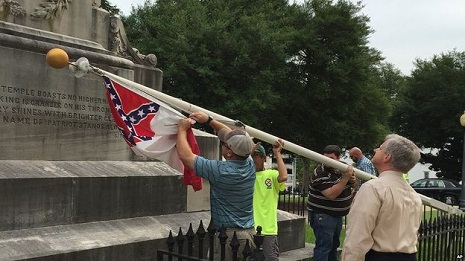
During that entire period, the Republicans relied on the "southern strategy", an appeal to socially and racially conservative whites alarmed by the rapid pace of change, many of whom clung to symbols of southern heritage like the Civil War colours.
The coming down of the Confederate flag surely marks the final symbolic end of that era.
For sure, there are "No Surrender" Republicans, like Ted Cruz, Mike Huckabee and Rick Santorum, seeking to mobilise the Republican base with continued attacks on Obamacare and the Supreme Court.
Yet June could go down not as only as the month that changed America but the month that changed the Republican party. But that is a rational view in a party not always known for its rationality.
The events of the past month also lay potential traps for the Democrats. It would be dangerous, for instance, to interpret them as America lurching dramatically to the left.
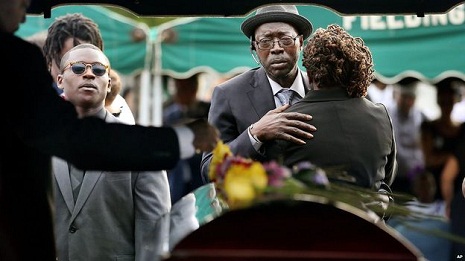
The electorate has punished the Democrats in the past for liberal over-reach, as it did at the congressional elections in 1994 and 2010, after two years of Bill Clinton and two years of Barack Obama, and would presumably do so again.
True, the Democrats have been dominant in presidential politics in recent cycles, as I argued here, but victory in 2016 is by no means assured.
Transformative though these past four weeks have been, it is also the case that justices on the US Supreme Court and conservative politicians in the states of the old Confederacy finally caught up with cultural and demographic shifts that have been reshaping this country for much of the past decade.
Even before last week, for instance, it was possible to argue that the opponents of same sex marriage had largely lost, though not yet possible to declare its champions as outright winners.
So while June was a dramatic month, it was noteworthy most of all for codifying changes that have been overtaking America for years.
That doesn`t make for such a snappy book title, but history generally defies neat packaging.
















































